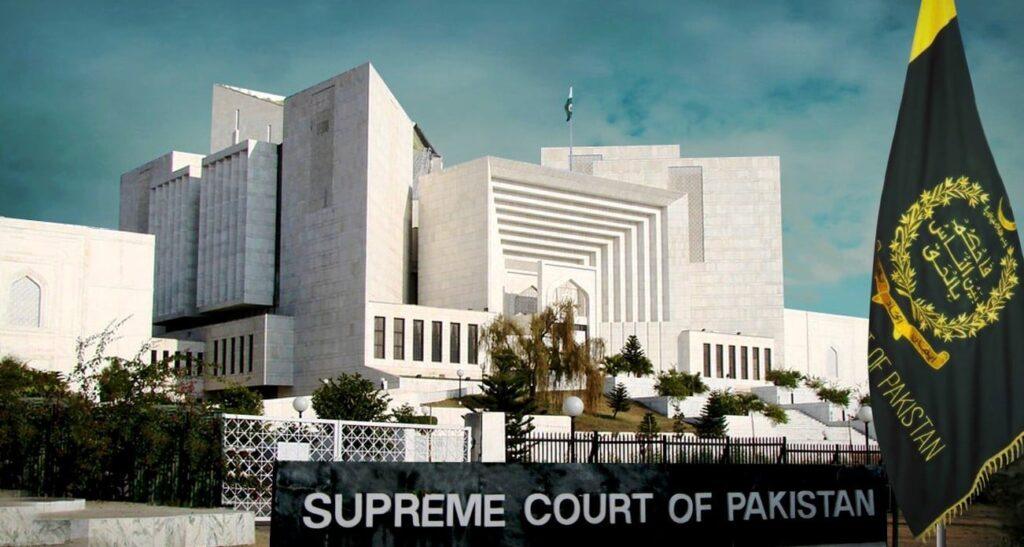The Supreme Court in Pakistan admitted on Monday for a preliminary consultation of the petitions petitions filed against its former judgment, which had given reserved seats to Pakistan Tehreek-E-Insaf (PTI).
The court issued messages to all affected parties while the case was characterized by examining questions and sharp comments from the bench, Express News reported.
A 13 -members bench, led by Justice Aminuddin Khan, chairman of the hearing. It included Justice Jamal Khan Mandokhail, Muhammad Ali Mazhar, Ayesha Malik, Hasan Azhar Rizvi, Naeem Akhtar Afghan, Musarrat Hilali, Hashim Kakar, Shahid Bilal, Salahuddin Panhwar, Aamerooq and Baqar Najafi.
During the hearing, Pakistan Muslim League-Nawaz’s (PML-N) lawyer Haris Azmat claimed that reserved seats were awarded a party that was not even a respondent in the original case. Justice Ayesha opposed that this question had already been addressed in the court’s previous decision and questioned the reasons for the review.
Justice Mandokhail noted that the bench had both the returning officers’ orders and the election commission’s decision before it under the original case. In response to Azmat’s argument that PTI could not challenge these orders, he asked, “Should the nation carry the consequences of one party’s legal errors?”
Justice Ayesha emphasized that the original judgment was based on a comprehensive hearing of all arguments. Justice Abbasi criticized the petitioners for repeating their original arguments without presenting valid reasons for review. “You do not identify any errors in the verdict,” he said.
When Azmat was asked about the implementation of the Supreme Court’s decision, Azmat said he did not realize, which prompted Justice Malik to question the enforcement of court decisions.
The Election Commission’s lawyer, Sikandar Bashir Mohmand, admitted partial compliance with the verdict. Justice Mandokhail expressed concern about selective implementation and drew a harsh analogy: “If the Supreme Court imposes a death sentence, would partly implement implementation to place the noise but not end the execution?”
Justice Abbasi also questioned whether the petries intended to educate the court and ask for arguments specifically under Article 188, which controls the extent of the review.
The court also investigated the status of the Electoral Commission in the review, with justice Malik, who questions how an institution that is tasked with making elections could act as a party to the case. She noticed, “You didn’t like the constitutional interpretation so you’ve returned with a review?”
Justice Kakar asked if the Commission had fully complied with the decision and warned that partial implementation raises doubts about the Authority for Future Legal decisions. Justice Malik added that the ECP cannot “choose and choose” which parts of a judgment to follow.
Mohmand defended the ECP’s attitude and said PTI was not a party to related cases for Peshawar High Court. Justice Abbasi pointed out that a contempt petition against the Commission was already pending and that their partial implementation could justify the contempt procedure.
When tensions got up, Mohmand accused the bench of forming opinions too soon, as Justice Malik firmly replied, “Don’t tell me what to think.”
The consultation was postponed until 1 p.m. 11.30am the day after. A majority of 11 judges approved the petitions for reviewing provisional consultation and issuing messages to the respondents. However, Justice’s Ayesha and Abbasi dissented.
Justice Ayesha declared the petitions about reviewing petitions and declared that she would issue a detailed note that outlined her reasoning. Justice Abbasi agreed with her attitude.



